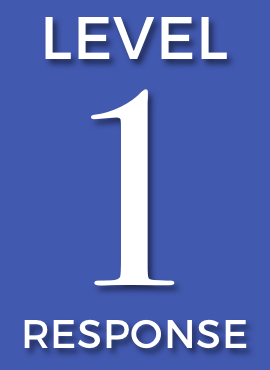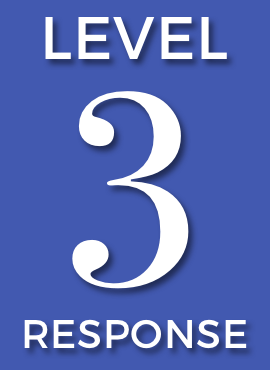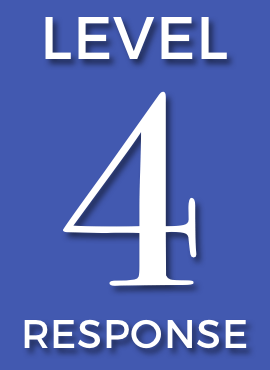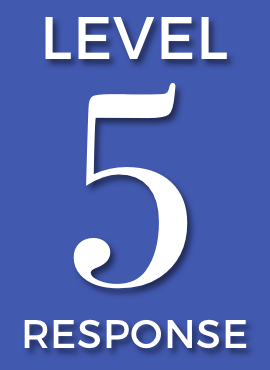The health of our families and friends is of utmost importance, and the threat to our personal health impacts our families, public events, and ministries.
A frequent question being asked right now is “What should I do?” I have written an advisory notice for my church that can help people make informed and rational decisions about how to respond to the COVID-19 pandemic. Leaders in other churches have been grateful for the guidance.
Prayerful and personal discretion is required to decide what you and your family members will do. Current measures taken to respond to the COVID-19 are temporary until the threat to our local healthcare system is abated. Our public worship is very important, and we want to ensure that worship and ministry are provided responsibly with long-term benefits in mind.
Church services can be conducted as usual for those who choose to attend, if appropriate for the level of threat in the community (see below). Alternatives to meeting in person include online streaming of services, small group meetings, and online conferencing.
Social distancing should be practiced at gatherings during the elevated threat level. This means taking precautions to avoid contributing to the spread of the virus. Appropriate responses to consider are listed below, according to the level of threat in the community.
Timely updates should be made available to your church members to keep them informed about the status of meetings.
You can obtain my free, concise, easy-to-understand, colorful 28 page eBook “Pandemic Insights: Preparing for What is Yet to Come” that will inform you about COVID-19 in the context of infectious diseases. It defines terms, and it explains the concepts behind the decision making for safety. This is information that will help you and your family make good choices for your personal well-being.
[This article updated 4-26-2020.]
Brief update
The lesson learned in Wuhan, China is that an early response to the disease is required in order to avoid overwhelming the healthcare system. Medical officials delayed their response for four weeks in Wuhan. Subsequently, their healthcare system was overwhelmed, and many died due to insufficient healthcare availability. Other provinces in China and elsewhere that have responded early and appropriately have not overwhelmed their healthcare systems, and lives have been saved. An overwhelmed healthcare system cannot adequately help those in need, whether they are suffering from the SARS-CoV-2 infection or some other health issue.
- COVID-19 is the name of the disease caused by the virus named SARS-CoV-2.
- Presymptomatic transmission may account for 25% of infections. You and others can be infected and spread the virus and not know it.
- Some studies are showing that SARS-CoV-2 should be treated, not only as a droplet disease, but as an airborne disease. It can be transmitted by just breathing and talking.*
- Isolation for 14 days is sufficient time to determine whether you are infected.
- From a medical report in Germany: 10 days after first appearance of symptoms, a person is not infectious.
5 responses to COVID-19

Before there is a confirmed case in your area
- Personal social distance (6 feet proximity).
- Regular disinfecting of hard surfaces.
- Coughing and sneezing for any reason, stay home.
- Elderly or poor health, and care-givers of such, should self-quarantine.
- If alternatives for events are possible, use them.
- Prepare for alternative methods for events.

When there is a confirmed or presumptive case in your area
- Practice social distancing.
- Avoid unnecessary events.
- Resort to smaller social gatherings.
- Resort to alternatives for social gatherings.
- Resort to online meetings for education and events, if possible.

When you are exposed to an infectious person
- Self-quarantine for up to 14 days.
- Avoid contact with others, and take precautions to not spread the disease.

When you are showing symptoms
- Self-quarantine until asymptomatic (about 10 days after first sign of symptoms).
- Contact your doctor’s office to get instructions.
- Online doctor consultations may be available.

When you test positive for SARS-CoV-2
- Self-quarantine until asymptomatic (about 10 days after first symptoms).
- Notify those you have been in recent contact with.
*Lanese, Nicoletta. COVID-19 may spread through breathing and talking – but we don’t know how much. April 7, 2020. Livescience. https://www.livescience.com/covid19-coronavirus-transmission-through-speech.html.
*Stephen M. Kissler, et. al. April 14, 2020. Projecting the transmission dynamics of SARS-CoV-2 through the postpandemic period. Science. https://science.sciencemag.org/content/early/2020/04/14/science.abb5793
Read more about “6 Helpful Insights to Help You Know What to Do About the COVID-19 Pandemic”
Be sure to click the button below to get your free eBook “Pandemic Insights: Preparing for What is Yet to Come.” This concise, easy-to-understand, colorful, 28 page eBook will inform you about COVID-19 in the context of infectious diseases and help you and your family make good choices for your personal well-being.
Dr. Briney earned his Ph.D. in microbiology from the University of Arkansas, specializing in immunology and infectious diseases. Click the button below to contact him with your questions or comments.

7 thoughts on “5 Ways to Respond Appropriately to COVID-19”
Dear Dr Briney: Thank you for the help you are giving to people. My 77 years old mother contracted covid 19 and she was at the hospital for 5 days here at Leesburg, VA. She has been at a rehabilitation center due to an accident where a hit and run was involved, this happened in January and since then she has been trying to walk (she had broken ribs, sternum, lower back and knee, she still on a wheelchair and now walking in a leg with a walker, her covid diagnosis is not helping to receive the proper therapy because at her rehab the nurses are really mean and they avoid a lot of contact with her, the place has been locked down since mid March and my mom got COVID 19 on April 18. She left the hospital on April 2
Thank you for This information
Thank You!
Pat, Much appreciated and sharing tomorrow as lead article on the ARRA News Service 3/23/2019. Also, hope you are doing well. We are getting older & self isolated on our AR Mtn Top 🙂
Excellent! Thank you.
Thank you for using your God
given knowledge to help guide us
in times like this. What a ministry
you have before you. We need Independent Baptist who care for each other. Again, thank you so
much.